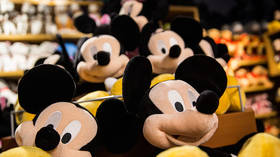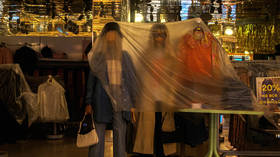Moscow allows parallel imports of popular toys

The Russian Ministry of Industry and Trade announced on Wednesday that products of some of the most popular US brands – Marvel, Disney Pixar, and DC Comics – have been authorized for parallel import. This means they can now be sold in Russia without the trademark owners’ permission, along with other goods on the ministry’s registry, amid the Western sanctions on Moscow.
“The list has been supplemented with brands of automotive spare parts, chemical industry products, toys, and other goods. Thus, it will now be possible to supply products of Marvel, Disney Pixar, DC Comics and other brands through parallel imports,” the ministry said in a statement.
Later on Wednesday, Aleksey Voronkov, the head of the Association of Cinema Owners, clarified that parallel imports do not yet apply to US production companies’ films and cartoons.
“The parallel imports registry now primarily covers goods and legally cannot yet apply to the rights on audio-visual content,” he told TASS news agency.
The Trade Ministry’s updated registry now also includes several major alcohol brands, including Jack Daniel’s, Johnnie Walker, and Jagermeister. The ministry noted that permission will only apply to those types of alcohol that are not currently produced in Russia.
The ministry emphasized that a brand can be added to the parallel imports registry only if its owner’s company had left the Russian market, stopped deliveries, or halted production in Russia. If a company returns to Russia, its brands will be removed from the list, the ministry explained.
Moscow lifted its ban on parallel imports in late March, just over a month into its military operation in Ukraine, amid harsh Western sanctions and an exodus of major international brands. The mechanism, which has since been extended into 2023, was put in place to ensure the interests of businesses and consumers, encouraging the import of goods which would otherwise be in short supply.
Since March, the Trade Ministry has regularly updated the registry, which now features dozens of categories, from cosmetics to weapons, as well as hundreds of international brands.
In June, Russian President Vladimir Putin signed a law that protects Russian companies importing goods without the right holders’ permission from civil, administrative, and criminal liability.
Parallel imports had previously been prohibited in Russia, punishable by a fine of up to $60,000.













